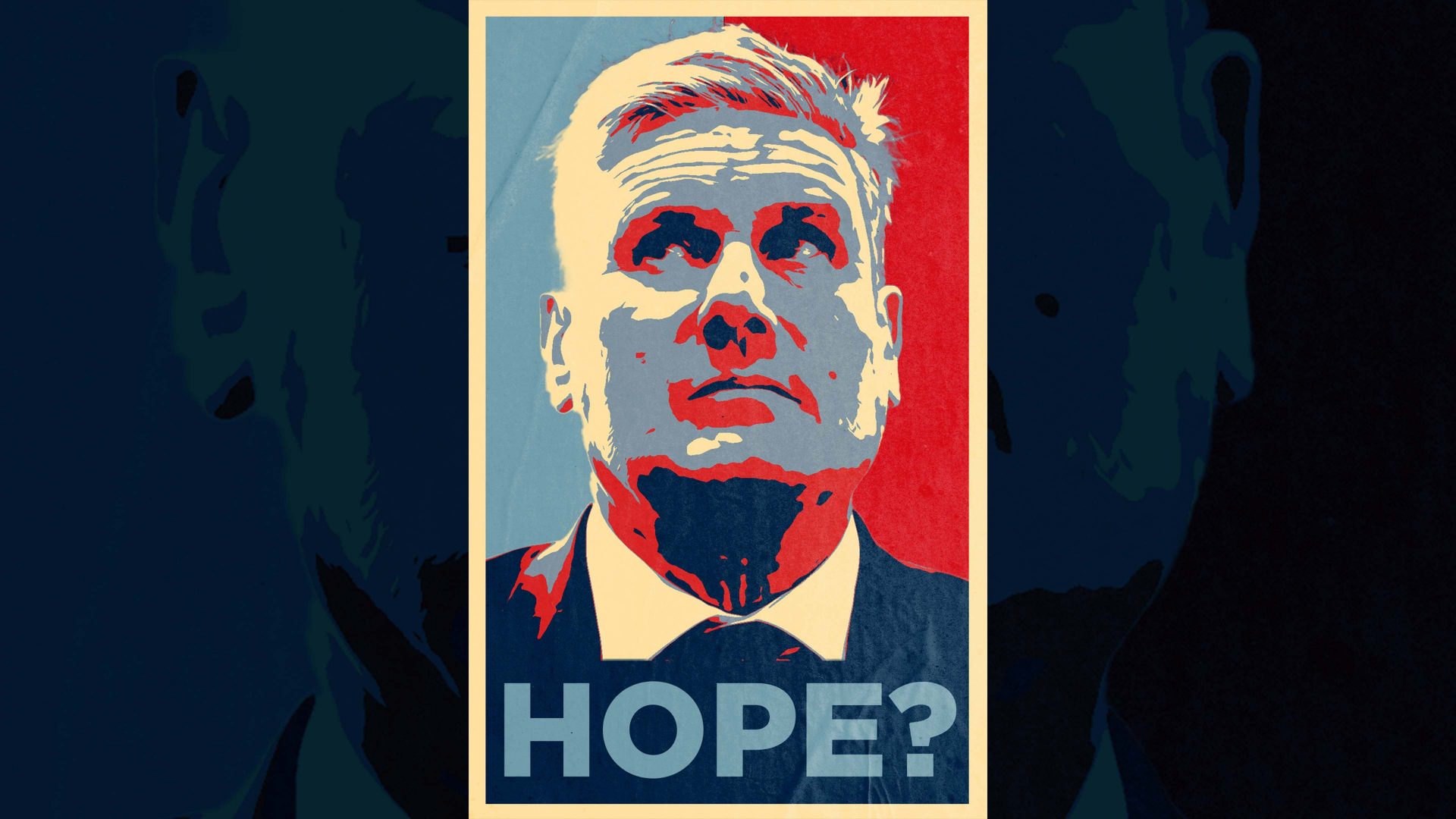In the latest episode of our podcast The Two Matts, TNE editor-in-chief Matt Kelly asks why, in this time of proliferating crises, no public figure has seized the opportunity to “galvanise a spirit of reinvention”? Why (for instance) does Keir Starmer seem disinclined to launch a “big conversation” about the NHS?
It’s a good question. The need for a surge of statesmanship could scarcely be clearer, as each new day brings a fresh fiasco: the RAAC shambles; the bankruptcy of Birmingham City Council; the escape of Daniel Khalife from Wandsworth prison; the unmasking of an alleged Chinese spy in the Commons; the disclosure that the legionella detected in the water on the Bibby Stockholm refugee barge was an especially deadly strain.
Each of these stories is intrinsically bad news for the government. But each also has a secondary function, adding to the already swollen stock of metaphors, parables and case studies that exemplify a broader sense of national decline, social malaise, and administrative collapse.
Rishi Sunak says he is “fired up” about the general election, which is nice for him. But such squeaks of embattled machismo only draw attention to the growing distance between the prime minister and the reality of his predicament.
To return to Matt’s question: the best way I can answer it is to ask another. Specifically – will someone start the 21st century, please? Who will turn the ignition key, so that we can get going?
To explain: Sunak, for all his claims to modernity, is a latter-day apostle of the Thatcher era, who had a portrait of Nigel Lawson above his desk in the Treasury. Starmer, for his part, has defined his leadership ever more explicitly with reference to Tony Blair’s, filling the shadow cabinet in last week’s reshuffle with the champions of Continuity New Labour.
Correspondingly, the two main parties busy themselves with the legacy issues of the last century. They argue at the margins about the scale of the state, while sticking remorselessly to the very narrow range of fiscal options bequeathed by the politics of the 1980s and 1990s.
Since the Tories won the Uxbridge and South Ruislip by-election in July, they have competed shamefully to sound cautious on action to tackle climate change and air pollution (“proportionate and pragmatic”, in Sunak’s disingenuous phrase).
This week, Starmer will attack the government’s record on immigration, promising “order at the border” under Labour. Again, this is 20th-century language deployed to address a 21st-century problem. Starmer and Yvette Cooper, the shadow home secretary, are right to seek closer cooperation with Europol, the EU’s cross-border law enforcement organisation; to promise more funding for caseworkers to handle the backlog of asylum claims; and to plan a specialist cross-border cell in the National Crime Agency.
But there is dishonesty in all of this. Yes, a Labour government could, if so disposed, radically improve the administration of the border; it could and should collaborate with other countries and the EU to crack down on people smuggling.
But none of this will affect the much greater challenge heading towards the UK and nations like it in the 2020s and beyond: namely, population mobility on a scale never seen in the modern era, driven by climate emergency and civil war. Butch rhetoric about “order” is no more than a holding position; one that merely postpones the moment of reckoning with the public about what really lies ahead.
The same may be said of the completely unnecessary decision by Rachel Reeves, the shadow chancellor, to rule out, categorically, the introduction of a wealth tax. Again, this is a 20th-century tactic applied to a 21st-century task.
The case for increased taxes on wealth has nothing to do with ideology and everything to do with practicality. In the coming decades, we will need more state action, not less: that much is a certainty, given the upfront costs of any serious net zero strategy; increased longevity and the structural problems facing both the NHS and social care; the need for greater pandemic resilience (Covid itself is still busily mutating, as is clear from the recent outbreaks of the BA.2.86 or Pirola variant); and the social and regulatory challenges posed by AI and, in due course, quantum computing.
It is perfectly understandable that, after 13 years in opposition and the electoral disaster of 2019, Labour’s priority is to reassure the public. But there is a difference between reassurance and outright deception; and the failure of Starmer and co to level with the voters about what faces the nation (challenges and opportunities) in the next 30 years edges towards the latter. They are using 1997 software on a 2023 machine.
To take a step back: the greatest task facing the next progressive government will be the breaking of the populist spell. At present our political culture is entirely defined by the dopamine hits of boosterism, vacuous slogans and the attribution of blame. In this seething digital era, there is little that truly deserves the name of “strategy”.
Yet the need for a long-term vision has rarely been so great – though the need has always been there. In Democracy in America (1835-40), Alexis de Tocqueville identified the problem thus: “Governments must apply themselves to restore to men that love of the future with which religion and the state of society no longer inspire them.”
For Barack Obama, this dilemma was at the heart of public life: “One of the hardest things in politics is getting a democracy to deal with something now where the payoff is long term or the price of inaction is decades away.”
Is Starmer – or anyone else – ready to step up to this particular plate? To shake the public out of the infantilism encouraged by the disastrous seductions of populism?
The hour requires a hefty dose of honesty. Not the magical thinking of the Brexit era, but the courage to confront the realities of our difficult, frightening, exciting century.
It will not be easy. But, to quote another great US president: let us begin.




